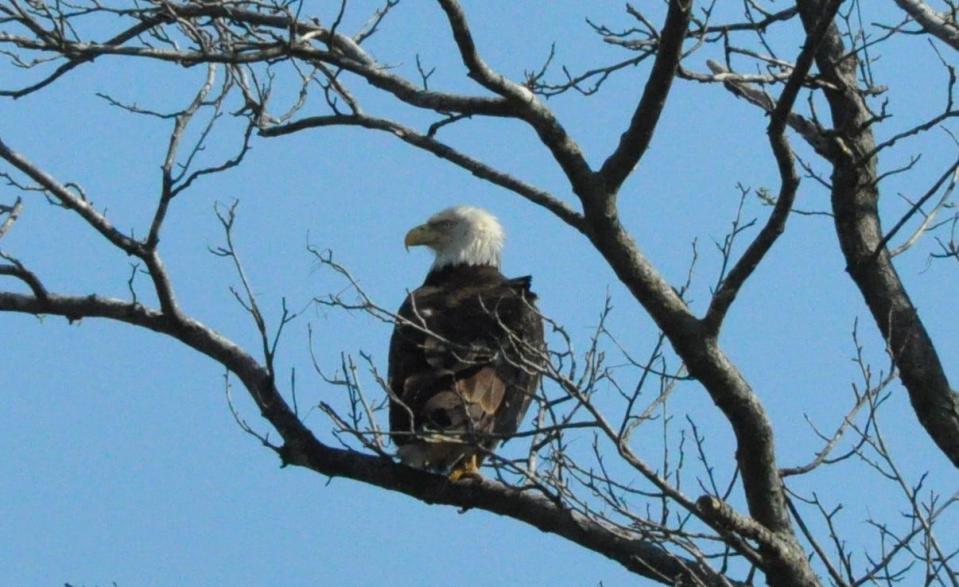Bald eagle shot in Delaware: US Fish and Wildlife Service offers reward for information
The U.S. Fish and Wildlife Service announced a reward Thursday of up to $2,500 for information about the shooting of a bald eagle near Clayton.
The injured adult bald eagle was found on the morning of Nov. 9 at the Blackbird State Forest Dulany Manor Tract near Clayton Delaney Road west of Clayton, near Maryland.
Tri-State Bird Rescue attempted to rehabilitate the eagle but the bird died.
The eagle was shot with a firearm. Both the neck and wing contained bullet fragments.
The U.S. Fish and Wildlife Service is asking anyone with information about the shooting to call special agent Brian Ricardi at (410) 228 2476 or 844-FWS-TIPS (397-8477) or to submit information online at www.fws.gov/wildlife-crime-tips.
Eagle protection laws and the comeback of the species
About 60 years ago, bald eagles were in danger of extinction throughout most of their range because of "habitat destruction and degradation, illegal shooting and the contamination of its food sources" mainly because of the pesticide DDT, according to the U.S. Fish and Wildlife Service.
The American Bird Conservancy reported that the population was at its lowest in 1963 with an estimated 417 breeding pairs in the lower 48 states. By 1997, the number had rebounded to more than 5,000.

Habitat protection from the Endangered Species Act, the federal government’s banning of DDT and conservation actions taken by the American public helped bald eagles make "a remarkable recovery," the Fish and Wildlife Service said.
Bald eagles were removed from the endangered species list in August 2007 and their population has continued to grow.
More on birds: Delaware is a top state for birdwatching. See tips on seeds, feeders, places to visit
The Bald and Golden Eagle Protection Act of 1940 prohibits anyone, without a permit issued by the Secretary of the Interior, from "taking" bald or golden eagles, including their parts, feathers, nests or eggs.
The act sets criminal penalties for people who "take, possess, sell, purchase, barter, offer to sell, purchase or barter, transport, export or import, at any time or any manner, any bald eagle...[or any golden eagle], alive or dead, or any part (including feathers), nest, or egg thereof." The act defines "take" as "pursue, shoot, shoot at, poison, wound, kill, capture, trap, collect, molest or disturb."
A violation can result in a fine of $100,000, imprisonment for one year, or both, for a first offense.
Permits can be obtained for "the taking, possession, and transportation within the United States of bald eagles and golden eagles and their parts, nests, and eggs" for:
Scientific, educational and depredation control purposes.
Religious purposes of Native American tribes.
protection of other interests in a particular locality.
Reach reporter Ben Mace at rmace@gannett.com.
This article originally appeared on Delaware News Journal: Shooting of bald eagle near Clayton: Reward offered for information

